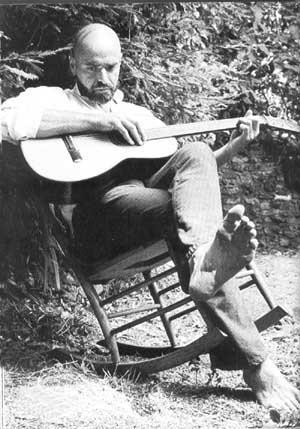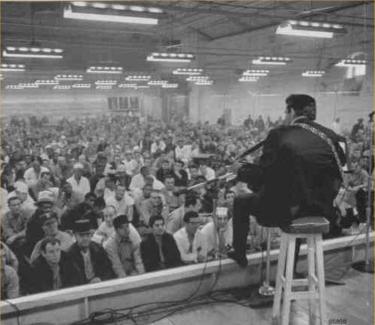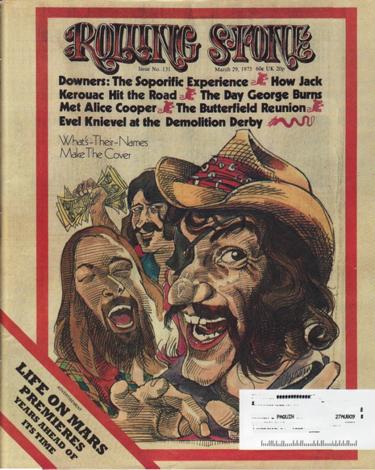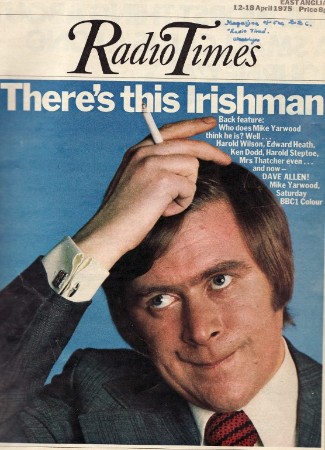Was the Song “The Cover of Rolling Stone” Re-Titled by the BBC?
Here is the latest in a series of examinations into urban legends about movies and whether they are true or false. Click here to view an archive of the movie urban legends featured so far.
MUSIC URBAN LEGEND: The BBC forced a change to the song “The Cover of Rolling Stone” for it to be played in England.
As I mentioned in a recent Poetry Urban Legends Revealed, Shel Silverstein was a songwriter as well as a poet and cartoonist.

Probably his most famous song was “A Boy Named Sue,” which Johnny Cash performed to great acclaim.

His next famous song was “The Cover of Rolling Stone,” a 1973 song about the thrill of a band and/or artist appearing on the cover of the popular magazine, which was performed by Dr. Hook and the Medicine Show (which, as you can see below, ended up with the band actually getting on the cover of the magazine)…

The song hit #6 on the Billboard charts.
A problem occurred, however, when the song crossed the pond and tried to become a hit in England.
The British Broadcasting Corpotation (BBC), who effectively ran pop radio in England, refused to air the song, as they felt that it was advertisement, seeing as how Rolling Stone was a commercial magazine.
So in England, they just had DJs shout out “Radio Times” at the point in the song when Rolling Stone is mentioned. Radio Times, of course, is the name of the BBC’s station guide!

It ended up doing well in England, as people got a kick out the way that they had fun with the restrictions.
Thanks to reader Duncan for the neat information!
The legend is…
STATUS: More False Than True, but with a Nice Serving of True
Feel free (heck, I implore you!) to write in with your suggestions for future installments! My e-mail address is bcronin@legendsrevealed.com.






Of course, the BBC also forced a change in the Kink’s Lola: changing “Coca-cola” to “cherry cola”. C-O-L-A, cola.
It’s false, I’m afraid. I’ve heard Dennis Locorriere correct this myth himself, and heard the version the BBC actually played (albeit not for many years). Basically they played the original proper version (it wasn’t rerecorded by them) but with some DJs shouting ‘Radio Times’ over the words ‘Rolling Stone’. It was done as a bit of fun really, getting round the awkwardness of the BBC’s restrictions over advertising at the same time. So that bit’s certainly correct (things are much looser now, thus Steven Moffat can liberally mention Twitter in Doctor Who stories).
There’s no Dr Hook version where they sing ‘Radio Times’ instead. Though, on stage, Locorriere has joking shown how difficult it would be to make it work (four syllables instead of three) by having a quick go (at he did at a concert my mum went to).
I thought he might have covered it on his website, and it turns out he has: http://denloco.websitetoolbox.com/post/Question-21-Cover-of-The-Radio-Times-2957442#
Since I’m nitpicking anyway, just a couple of small other corrections. The C in BBC is for ‘Corporation’, not ‘Company’. And please don’t use England for the whole of the UK (which the BBC covers). You’ll only upset the Scots, and you don’t want Grant Morrison angry at you (you might upset the Welsh too, but no-one will notice).
Sorry. Love your legends and CSBG stuff, just a shame the first time I’ve had something to say it’s been to say something’s wrong. If it helps, please read this as said in an apologetic tone.
Thanks for the information, Duncan!
Similar restrictions resulted in the video for the Talking Heads song “Love for Sale” being banned, because it featured clips from commercials in something else either than a commercial. I think the clip featured in the David Byrne-directed film TRUE STORIES was also edited out as a result.